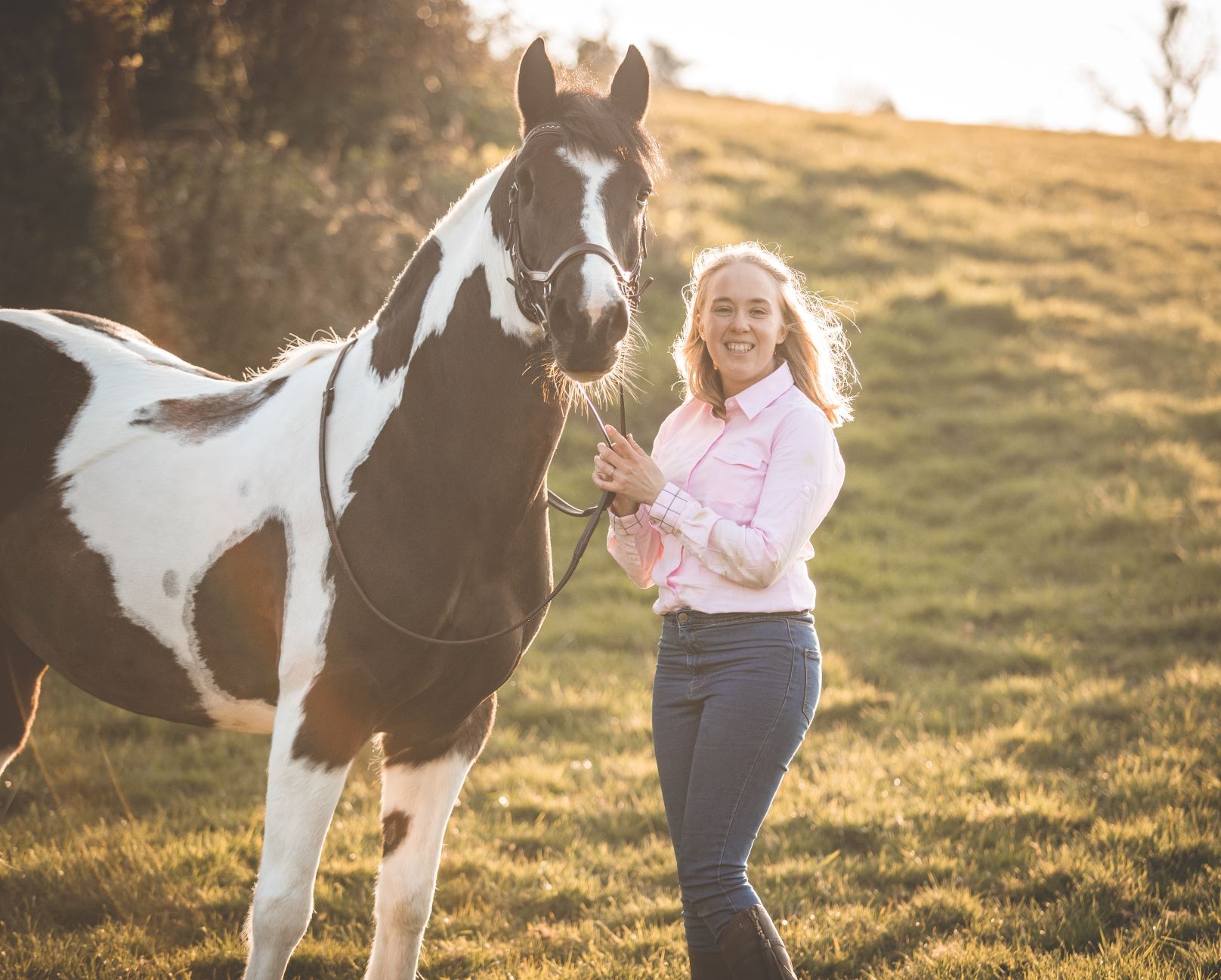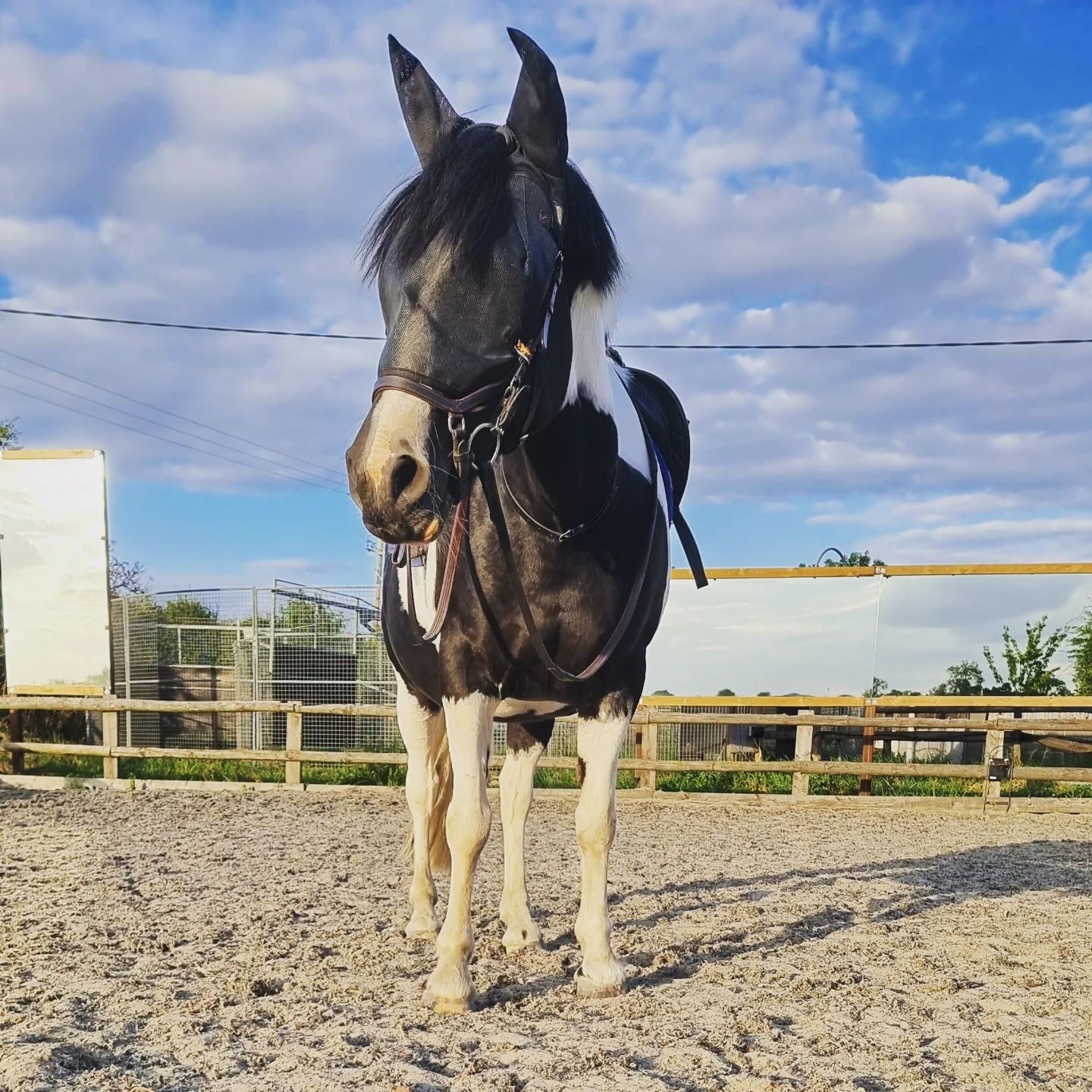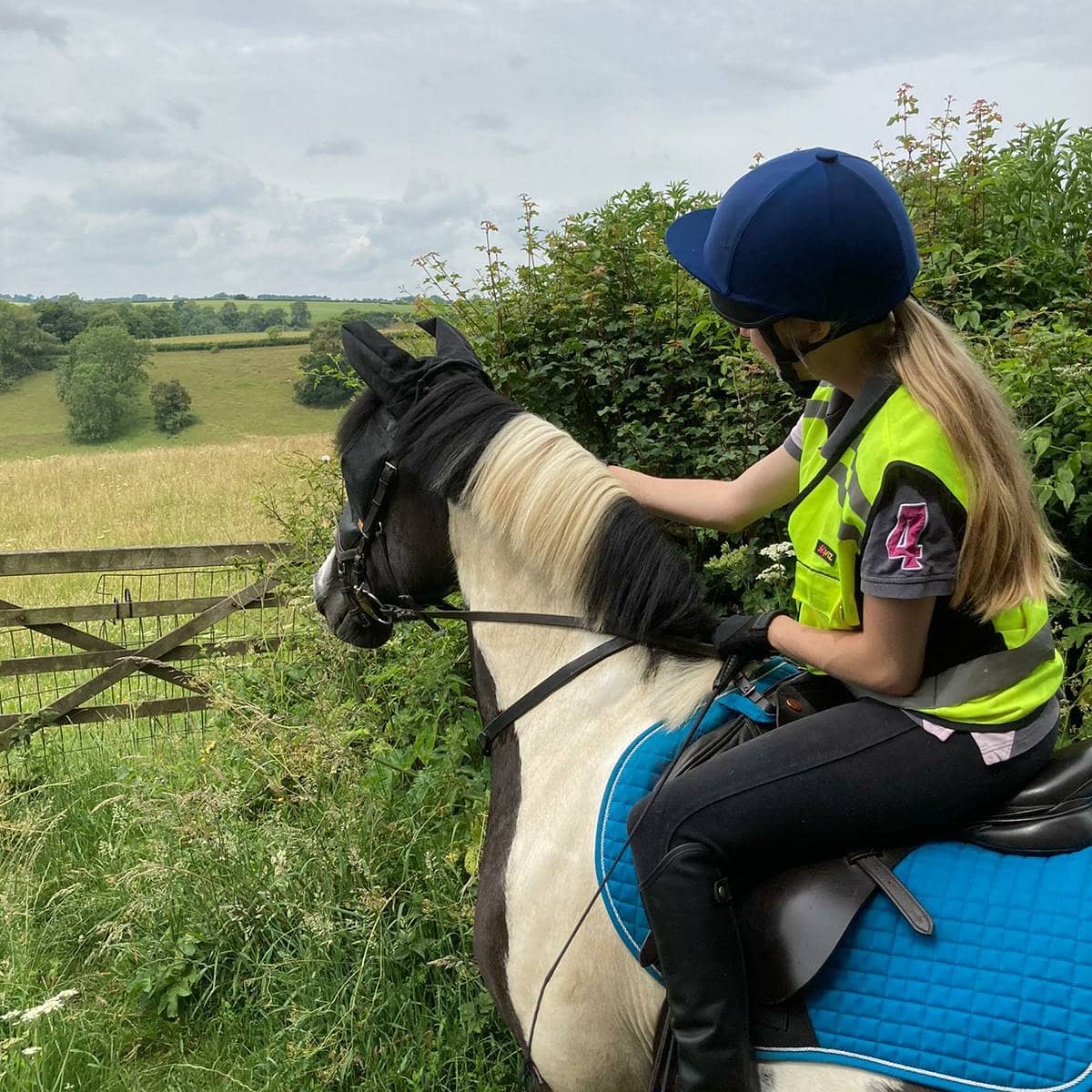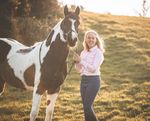Average Equestrian to One Eyed Wonder Pony
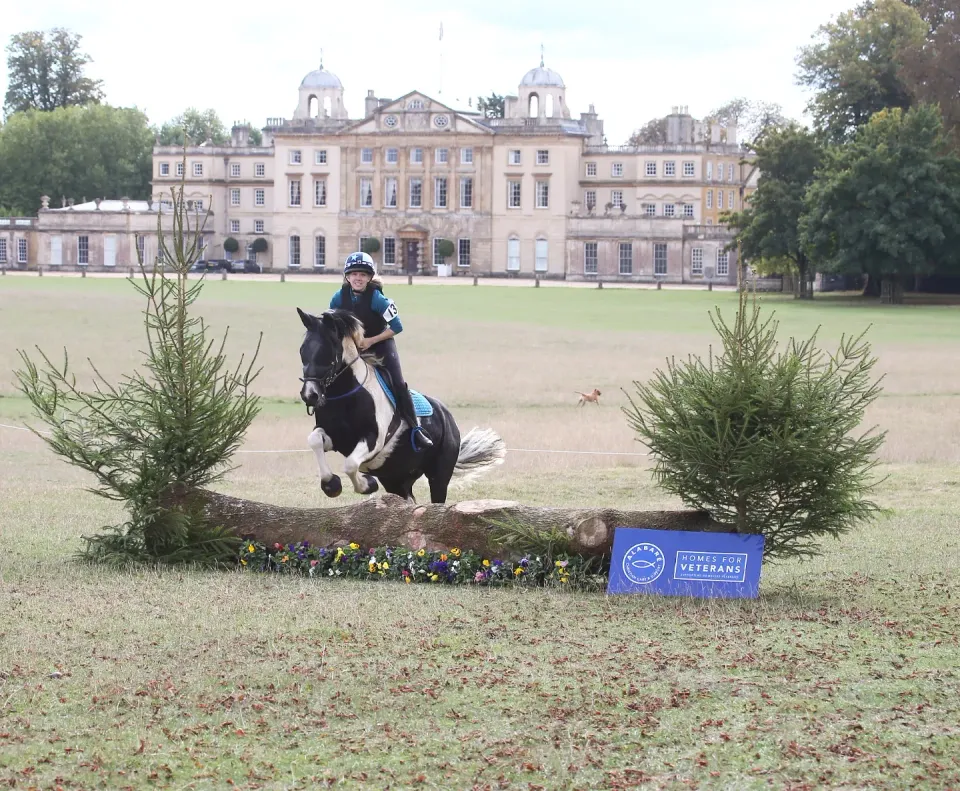
You may have guessed from the title that I am going to share a bit about my experience of owning a pony as she became a one eyed equine.
The journey starts like any pony mad girl who finally gets her first pony. Things were going well, nothing out of the ordinary. Until Queenie developed Equine Uveitis. I had never even heard of it!
I soon found out this was not a common condition. All the online research and studies were American or Australian. A lot of the research was not positive with some advising that the majority of horses will become blind and will never return to ridden work. It didn’t fill me with hope. Instead, I felt alone on this unknown journey. I felt ashamed - like I’d done something wrong.
Uveitis is also known as moon blindness. It affects horses around the world, but certain breeds are more susceptible. The key symptoms are weepy eyes/discharge, sensitivity to light, holding their eye(s) shut, constricted pupil, and cloudiness of the eye.
We spent months treating Queenie’s flare ups. Unfortunately, she developed Recurrent Uveitis, and the decision was made to try to replace her lens via an operation. After a couple of months, we realised the operation hadn’t worked. Queenie had developed a painful ulcer. The only option left was to remove the eye, and there came my one-eyed pony.
Queenie’s remaining eye is now more likely to develop Uveitis. Triggers can be wind, sun, trauma, or any irritation to the eye. I minimise the risk of this with careful management, in the form of a mask which she wears almost 24/7 unless stabled indoors.
Treatment for flare-ups are veterinary prescribed steroid eye drops. Each flare-up can potentially cause damage to the eye which could result in loss of vision.
I wanted to share this story to help anyone who may go through this, to let you know you're not alone and that it is not your fault!
This journey has taught me that I am more resilient than I know. I will do anything for my animals, and it has meant that my bond with Queenie has been built on trust.
After Queenie's eye was removed, she seemed to adjust very well, once the initial healing was done and her senses had adjusted. We can only guess that it was a relief to finally be free of that constant discomfort.
I built her slowly back into work, we started with in hand walking, then ridden walking and slowly built her confidence. She adapted so quickly, showing no signs of having any significant issues. The only noticeable quirks are when we are on the right rein she likes to look to the outside. She also struggles when the light changes and goes from shade to sun quickly. She has adapted so well, that this year we achieved a huge goal and went on the Badminton Fun Ride!
I knew Equitas was the place to share this journey, and that it may help someone.
